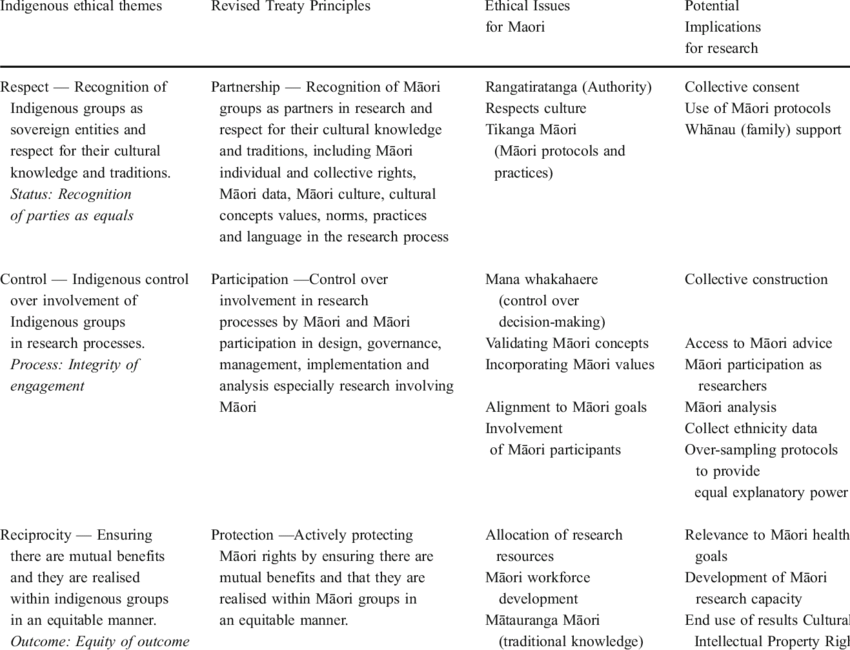Treaty of Waitangi and research
Why is the Treaty of Waitangi important for research?
Researchers, when engaging with Māori communities, are in a process of relationship building and this process can be guided by the principles of the Treaty of Waitangi: partnership, participation and protection.
The main concerns for many indigenous peoples in research revolve around respect for their indigenous rights, control over research processes and reciprocity within research relationships to ensure that equitable benefits are realised within indigenous groups.
Hudson and Russell (2009) developed a treaty-based framework for engaging Māori communities in research. The framework is summarised in this table, which is drawn from their The Treaty of Waitangi and Research Ethics in Aotearoa paper.
The framework is helpful for guiding discussions on ethics and research outcomes. These discussions should take place both within the team and with the Māori communities you are working with.
 Treaty-based framework for engaging Māori in research, Hudson and Russell (2009)
Treaty-based framework for engaging Māori in research, Hudson and Russell (2009)
More information
HUDSON, M. L. & RUSSELL, K. 2009. The Treaty of Waitangi and Research Ethics in Aotearoa. Journal of bioethical inquiry.



